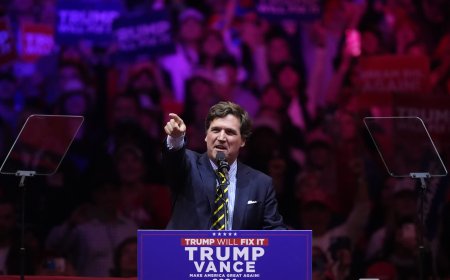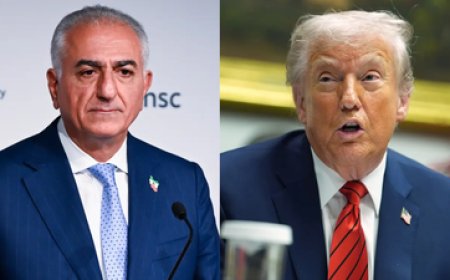Elon Musk and the Rise of the Dictator CEO


Watching Elon Musk take over large parts of government triggered a shock of recognition among those of us who study big business: the tactics he is applying to the executive branch are the same as those that have transformed corporate America. In the 1950s and 1960s, Chief Executive Officers (CEOs) were seen as “stewards” of their companies, looking out for the enterprise’s long-term health and balancing the needs of multiple stakeholders—primarily shareholders, but also employees, customers, and the cities where they were based. It’s not that there weren’t any outsized personalities back then, like David Sarnoff of RCA or Alfred P. Sloan of General Motors, but the typical corporate titan was more organization man in William Whyte’s phrase than swashbuckler. In the post-war era of 80 percent marginal tax rates, the source of a CEO’s prestige was the company rather than individual wealth. Starting in the 1980s and accelerating through the 1990s, CEOs came to be seen as “dictators,” imposing their will and obsessed primarily with maximizing shareholder value.
How did the new generation of dictatorial CEOs gain so much power? First, CEO selection changed, favoring the “charismatic” or “narcissistic” leaders who could command a boardroom. These CEOs exercised personal power, based on sheer dominance, rather than the institutionalized power of the technocratic CEOs of mid-century. The CEOs recruited a “new boys” club to outflank the “old boys” who represented company traditions based on expertise, experience, and collaboration to impose their will.
The recruitment efforts often began with layoffs. Jack Welch, the legendary GE CEO who arguably started the new era, began his tenure by laying off 100.000 of GE’s employees during his first years at the company. Elon Musk laid off 80 percent of Twitter’s workforce when he acquired control. Amid massive layoffs, those who objected were easily marked for dismissal. Second, the CEOs promoted a new group of lieutenants selected for their ability to implement the CEO’s vision. In grooming store managers, Sam Walton liked to brag that he preferred those without college degrees because “college boys,” like women, could not be trusted to unload trucks, mop floors, and do whatever it took to succeed. He didn’t say that his successful managers also engaged in wholesale wage suppression, including flouting the wage and hour laws. Welch delighted in bypassing those next in line for promotion, instead reaching into the ranks and promoting those “with confidence to spare.” Cutting through the bureaucracy he detested, he let his acolytes do whatever they wanted—so long as they met their numbers. What Welch didn’t say is that the “numbers” were corporate quarterly earnings, numbers that Welch manipulated to boost the company’s share price, enriching himself and his lieutenants. Third, the dictatorial CEOs then pitted employees against each other in a competition for high-stakes bonuses and stock options. Jack Welch adopted an employee evaluation system in which he gave top performers outsized bonuses and fired the bottom 10 percent of workers every year. His system allowed management to incentivize whatever objectives management chose. Musk recently followed Welch’s lead in prescribing stock options for Tesla’s highest performers, judged by criteria Musk would dictate.
These tactics cement CEO control of multinationals, whether relatively new companies like Tesla or established ones like Twitter and GE. A new CEO can clean house, promote loyalists into the lieutenant ranks that police company operations, and announce immediate results, typically gains in earnings from myopic cost-cutting efforts. Immediate gains in profitability, in turn, increase the deference CEOs enjoy from corporate boards, even if the cost-cutting undermines the company’s longer-term prospects—or, in Boeing’s case, cause planes to crash. The new boys who implement the changes are typically young, male, amoral, inexperienced, and more focused on shaking things up than preserving institutional norms and integrity.
Do these tactics, which are closely associated with increased CEO power and pay, strengthen their companies? A recent study found that narcissistic CEOs underperform others. Studies of cost-cutting further show that while cuts may be the most effective way to produce an immediate boost in profits, they often do so at the expense of long-term company health. These tactics have been linked to the “end of loyalty,” dismantling the older system that motivated employees to act to advance company interests rather than to maximize their next bonus. And it has certainly marked the end of company loyalty to its employees. Instead, they have been most effective in enhancing CEO compensation, which has increased from a 20:1 ratio in the fifties to a 290:1 ratio in 2023.
The federal government, however, is not a business. One-man rule is inconsistent with the separation of powers. The objectives of government agencies are not the whims of one person—or even the administration—currently in power; they reflect long-term and frequently bipartisan public commitments. Cutting costs is not the same as increasing efficiency; cashiering experienced employees, both in business and government, undermines institutional effectiveness. Instead, Musk’s co-presidency should be seen as a naked—and quite possibly illegal—power grab. These tactics, which have dramatically increased economic inequality, benefit the new oligarchs at the expense of everyone else. In government, like business, these tactics are a recipe for dictatorship.
The post Elon Musk and the Rise of the Dictator CEO appeared first on Washington Monthly.














































